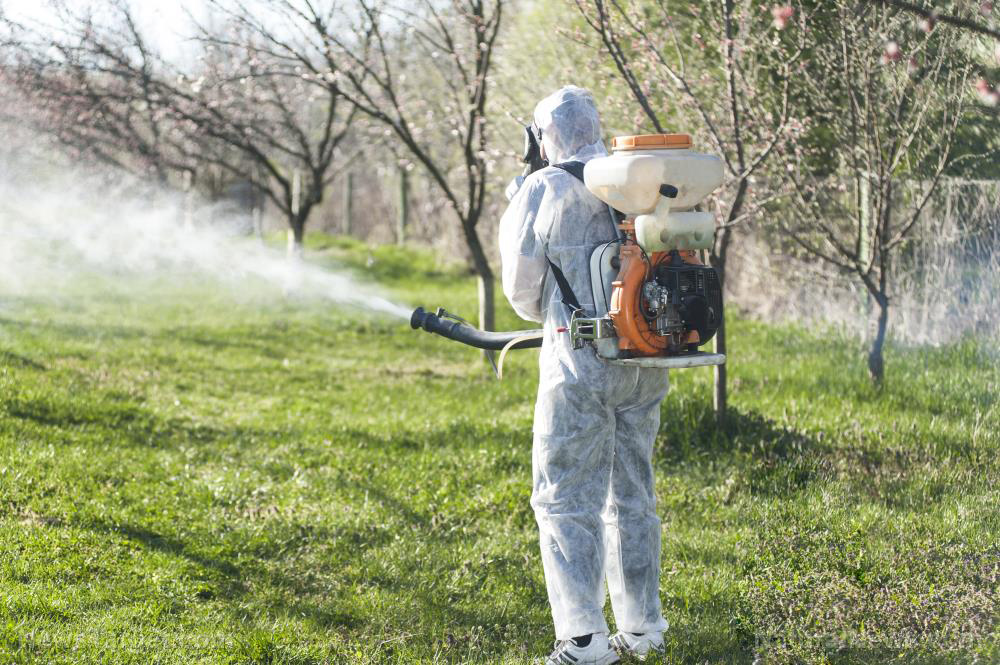Common herbicides linked to diminished brain function in young adults
11/07/2023 / By Olivia Cook

The use of herbicides has become commonplace in a world that constantly strives for greater crop yield, as well as beautiful lawns and landscaping.
However, a recent study from the University of California, San Diego (UCSD) has found potential dangers linked to the use of common herbicides – particularly their impact on the brain function of adolescents.
Previous studies have also linked exposure to some of the most used insecticides to altered neurocognitive performance, while other insecticides have been shown to affect brain development and mood.
Exposure to neurotoxic environmental contaminants, such as herbicides and insecticides, could help explain the increased incidence of many chronic diseases and mental health disorders in adolescents and young adults over the last 20 years worldwide, said the study’s senior author Dr. Jose Ricardo Suarez.
This UCSD research assessed whether herbicides and insect repellents are associated with neurobehavioral performance in adolescents, as well as understanding the effects of pesticide exposure on the development of humans from childhood to adulthood.
Researchers from the Herbert Wertheim School of Public Health and Human Longevity Science at UCSD recruited a total of 519 participants living in agricultural communities in Ecuador, aged 11-17 years old.
They quantified urinary concentrations of herbicides glyphosate and 2,4-D, as well as insect-repellent metabolites DCBA [3-(diethylcarbamoyl)benzoic acid], DEET (two N,N-diethyl-meta-toluamide) and ECBA [3-(ethylcarbamoyl)benzoic acid].
Using nine subtests, neurobehavioral performance was assessed across five domains: attention and inhibitory control; memory and learning; language; social perception; and visuospatial processing.
Associations were characterized using generalized estimating equations and multiple imputations for metabolites below detection limits.
Models were likewise adjusted for demographic and anthropometric characteristics that define physical measures of the participants’ size, form and functional capacities, sexual maturation and urinary creatinine to test how well the kidneys are working.
Lastly, structural equation modeling was used to assess mediation by salivary cortisol steroids and hormones, like dehydroepiandrosterone, estradiol and testosterone.
Published in the journal Environmental Health Perspectives, the study reported detecting the following pesticides in urinary samples taken from the participants:
- Glyphosate in 98 percent of participants
- 2,4-D in 66 percent of participants
- DCBA in 63 percent of participants
- ECBA in 33 percent of participants
- DEET metabolites were not associated with neurobehavioral performance
- Mediation by gender and adrenal hormones were not observed
Glyphosate linked to decreased social perception
Higher concentrations of glyphosate were significantly associated with only decreased social perception – the comprehension of social communication or cues – the signals people send through body language and facial expressions.
Higher concentrations of 2,4-D were negatively associated with all five neurobehavioral domains mentioned earlier. Difficulties associated with cognitive decline include memory problems and younger onset dementia.
Neuropsychiatric disorders that were also negatively associated with 2,4-D include neurasthenia (a collection of symptoms, such as depression, difficulty concentrating, fatigue, headache and insomnia), post-traumatic stress disorder (PTSD) and suicide.
The findings of the study are a wake-up call and a stark reminder of the unseen dangers in the environment – particularly in agricultural practices that ultimately bring food to the table. (Related: Pesticides and herbicides like glyphosate now strongly linked to Parkinson’s disease and other neurological disorders.)
The authors called for proactive measures as 20 percent of adolescents and 26 percent of young adults now face diagnosable mental health conditions, such as anxiety, depression and learning disorders over the past two decades.
Suarez also pointed out that every year, hundreds of new chemicals enter the market, with over 80,000 currently registered for use today, many of which haven’t been comprehensively studied for safety by any agency.
The pervasive use of herbicides is a global concern and this study highlighted the compelling and urgent need to understand environmental neurotoxicants’ roles and implications for adolescent cognitive health and mental well-being.
Visit Pollution.news for more stories like this.
Watch this video about glyphosate warnings.
This video is from the Health Ranger Report channel on Brighteon.com.
More related stories:
RFK Jr. links herbicides in drinking water to gender dysphoria.
Glyphosate herbicides may be altering children’s genetics and causing BIRTH DEFECTS.
RFK Jr. agrees with Alex Jones: Chemical tainted water supply turning children gay, transgender.
Sources include:
Submit a correction >>
Tagged Under:
agriculture, Bayer, brain damaged, brain function, brain health, cognitive function, cognitive health, Dangerous, dementia, depression, environment, glyphosate, health science, herbicides, insecticides, mental health, Mind, Monsanto, poison, research, toxic chemicals, toxins, weed killer
This article may contain statements that reflect the opinion of the author
RECENT NEWS & ARTICLES
Chemicals.News is a fact-based public education website published by Chemicals News Features, LLC.
All content copyright © 2018 by Chemicals News Features, LLC.
Contact Us with Tips or Corrections
All trademarks, registered trademarks and servicemarks mentioned on this site are the property of their respective owners.



















